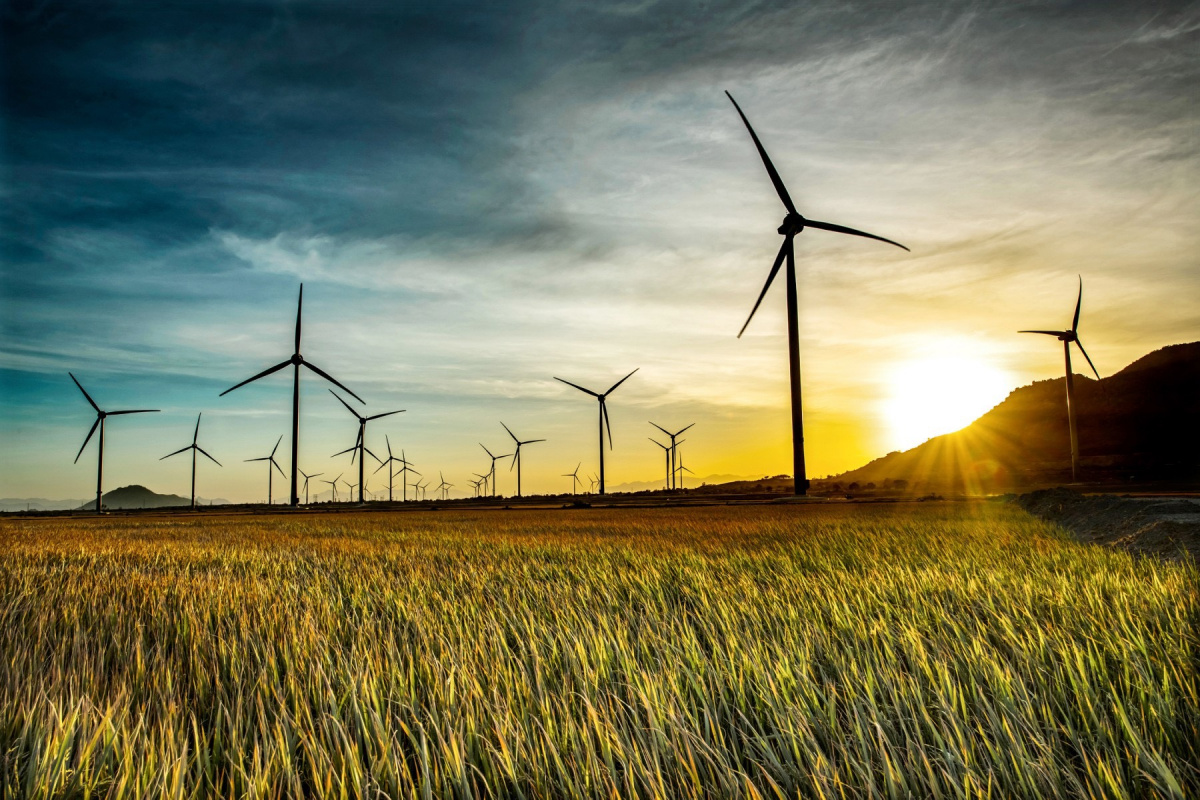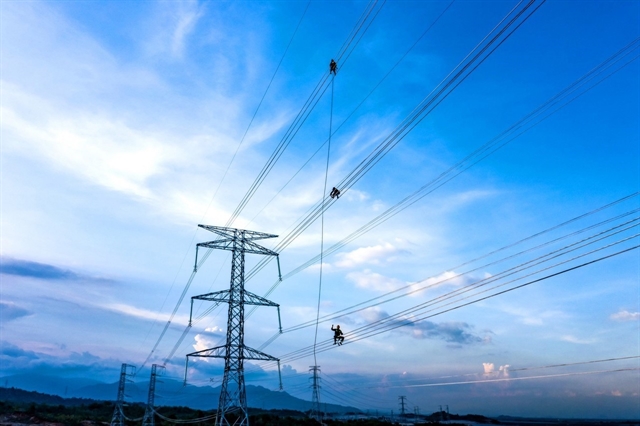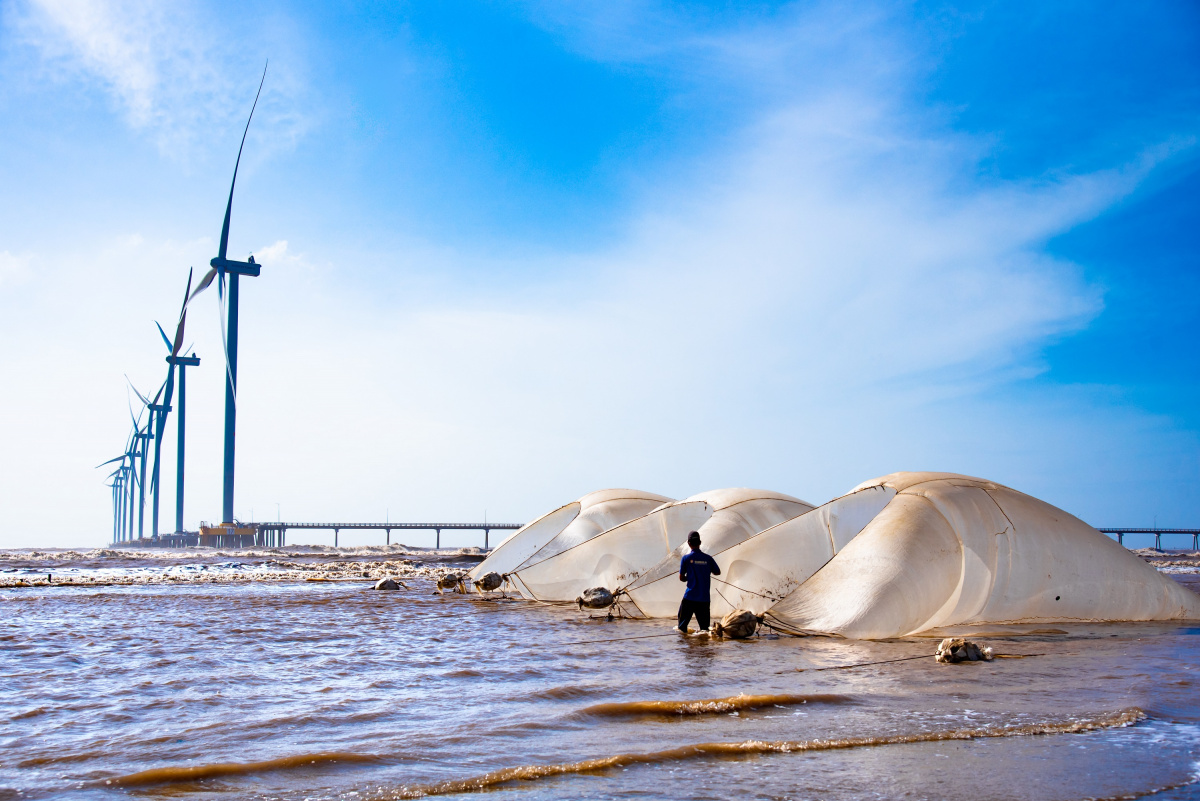Scaling-up flood-friendly livelihoods to strengthen climate change resilience in the Mekong Delta
Facing impacts from extreme droughts and floods as a result of climate change, authorities and local farmers in Long An Province, Viet Nam have developed and implemented climate change adaptation measures to reduce the vulnerability of the local communities and their livelihoods. The measures rely on fostering, rather than excluding, the annual floods during the flood season, and restoring the natural flood plain to grow lotus and floating rice, in lieu of a third crop of irrigated rice. This is achieved by opening up and flooding rice growing polders in order to grow more profitable flood-based crops than high yield varieties of rice.
The “Flood-based-livelihoods in Long An Province” small grant builds on previous work completed by IUCN with funding from The Coca Cola Foundation and local authorities, which demonstrated strong community interest in adopting flood-based livelihoods as an alternative to intensive rice cropping, which is resulting in the loss of climate, economic and social resilience in the Mekong Delta. The project is being implemented in Vinh Loi, Vinh Dai, and Vinh Thanh communes, in the Tan Hung district. The grant expanded the previous demonstrations to new households within the communes with each commune piloting a different alternative crop: lotus seeds, lotus shoots, and floating rice, respectively. A total of 139 hectares of land are being cultivated with flood-friendly crops during the project. Vietnam’s major rice exporter, Loc Troi, has committed to purchasing the floating rice produced from the demonstration.
Previous pilot projects on flood-friendly crops have resulted in increased incomes for farmers during the flood season, with benefits including greater economic resilience and the diversification of environmentally friendly products available from lotus seeds, lotus shoots, and organic rice.
“We are beginning to see increased interest in these alternative livelihood models in the provinces that occupy the upper delta floodplain, and we are working with local stakeholders and policymakers to promote these ideas at a larger scale. As climate change continues to impact rainfall patterns, there is a need to adjust local farming practices to ensure resilient livelihoods. Multiple benefits are also derived from the models, including higher profits, less pesticide use, and better biodiversity outcomes as during the flood season aquatic habitat is literally expanded with the flooding of the polders” said Andrew Wyatt, Deputy Head, Indo-Burma Group, IUCN.
Restoring the lost floodplain reduces the risks of flood damages in the area, while simultaneously bringing sediment deposits and helping to improve soil quality. The floods are also helping to increase the biodiversity of the area around Lang Sen Ramsar Site and Nature Reserve by restoring lost habitat areas. If enough lost flood area is eventually restored across the upper delta flood plain by upscaling the models, the recession of the floods at the beginning of the dry season from increased flood retention area will help with moderate salinity intrusion in the coastal areas during droughts.
Local interest is building to replicate the model in neighbouring areas, helping farmers to change cultivation methods, secure jobs throughout the flood season, and generate daily income from lotus and floating rice products, seasonal crops, and fish.
The small grant is supported by IUCN’s Mekong WET project, which aims to build the resilience of wetlands in the Lower Mekong Region, and is funded by the International Climate Fund (IKI) under the German Ministry of Environment, Nature Conservation, Construction, and Nuclear Security (BMU).
About MWET
Funded by the International Climate Initiative (IKI) of the German Federal Ministry for the Environment, Nature Conservation, Building and Nuclear Safety (BMUB), the “Mekong WET: Building Resilience of Wetlands in the Lower Mekong Region” project aims to build climate resilience by harnessing the benefits of wetlands in Cambodia, Lao PDR, Thailand, and Viet Nam.
Mekong WET will help the four countries to address their commitments to the Ramsar Convention, an international treaty for the conservation and sustainable use of wetlands, and to achieve the Aichi Biodiversity Targets.
About IBRRI
The Indo-Burma Ramsar Regional Initiative (IBRRI) was jointly developed by the Ramsar National Focal Points of the five countries (Cambodia, Lao PDR, Myanmar, Thailand, and Viet Nam), and IUCN’s Asia Regional Office, based on specific needs identified in these countries. It was endorsed by the 52nd meeting of the Ramsar Convention Standing Committee in June 2016. The IBRRI aims to support the coordinated implementation of the objectives of the Strategic Plan of the Ramsar Convention. IUCN acts as the Secretariat for the Initiative under the leadership of the Steering Committee, which includes representatives from the five governments and the Ramsar Convention Secretariat as an observer.





